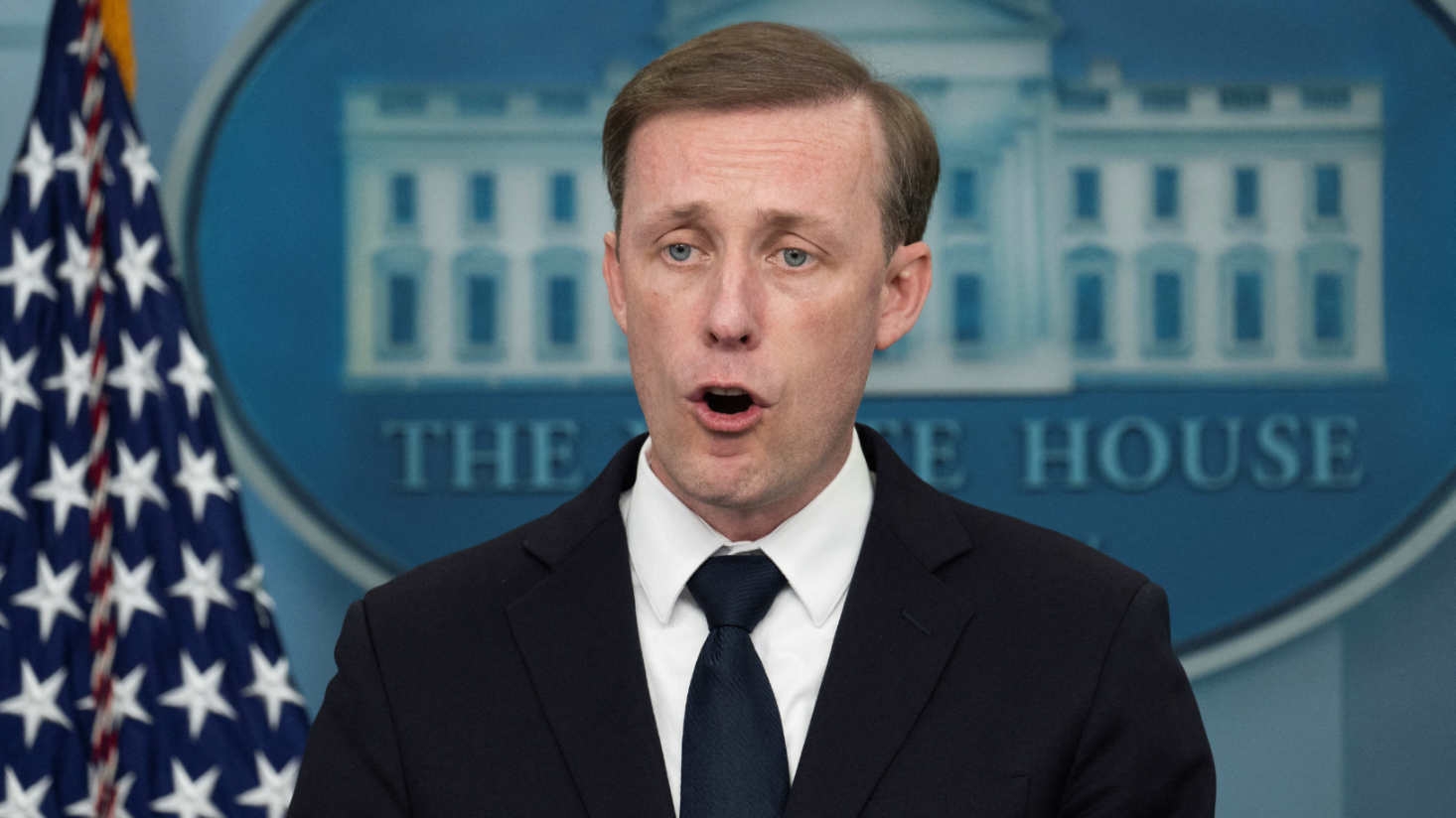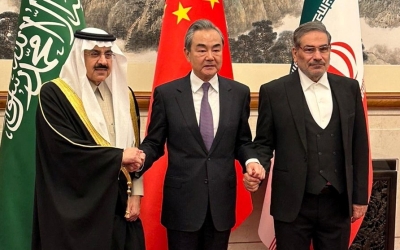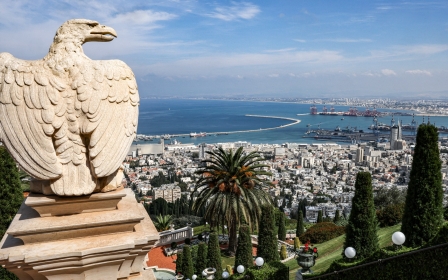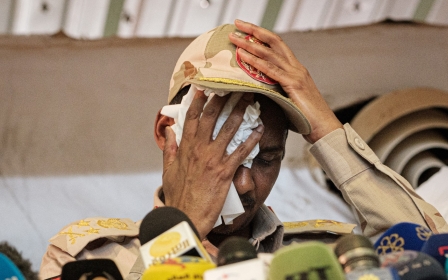Biden aide meets Saudi crown prince, talks India infrastructure deal and Sudan

US President Joe Biden’s top national security advisor met with Saudi Arabia’s Crown Prince Mohammed bin Salman in Riyadh on Sunday, along with officials from India and the UAE, as Washington looks to check China’s rising influence in the region.
A White House statement on the meeting said US national security advisor Jake Sullivan discussed with the crown prince and Emirati and Indian officials “plans to advance their shared vision of a more secure and prosperous Middle East region interconnected with India and the world”.
The meeting follows a report by Axios on Saturday that the officials were meeting for talks about building a vast infrastructure network that would connect Gulf and Arab countries to India via rail and shipping lanes.
The idea for the project was raised in talks over the last 18 months after the formation of a forum called I2U2, which includes the US, Israel, the UAE and India, according to Axios.
The forum was rolled out during Biden’s visit to Israel in July, with the countries' leaders announcing projects in fields from food security to clean energy. The UAE pledged to invest $2bn to develop a series of "food parks" in India, with US and Israeli companies participating in the projects.
New MEE newsletter: Jerusalem Dispatch
Sign up to get the latest insights and analysis on Israel-Palestine, alongside Turkey Unpacked and other MEE newsletters
Israel and the UAE normalised ties in 2020 under the US-brokered Abraham Accords. Since then, economic ties have expanded and last year they signed a free-trade agreement to abolish tariffs on 96 percent of bilateral trade.
Washington has promoted cooperation between its two partners in sectors like food security and energy, in an effort to deepen ties.
India’s involvement in the initiative comes amid New Delhi’s burgeoning relationship with Israel and follows major investments in projects like Haifa Port. Washington views India as a strategic partner in its great power rivalry with China.
Beijing looms large
Sullivan’s visit to the kingdom had overlapping purposes. Washington has tried to build on the Abraham Accords by securing the establishment of official diplomatic relations between Israel and Saudi Arabia, a move that Riyadh has more recently expressed coolness towards.
Before Sullivan’s trip, the head of Israel's National Security Council, Tzachi Hanegbi, said the country was "very, very hopeful that there will be a breakthrough during his (Sullivan’s) visit there,” in an interview on Wednesday with Reshet 13 News.
At the same time, Washington sees cooperation between Saudi Arabia, India and Israel as a way to check Beijing’s growing influence in the region. The Biden administration was sidelined in March when Riyadh moved to normalise ties with Iran - Israel’s arch-rival - in a deal brokered by China.
Aaron David Miller, a former senior US official, told MEE previously that the deal was a blow to Washington’s regional ambitions.
"There is no way to get around the embarrassment when you have your foremost adversary - China - brokering a deal between your supposed Middle Eastern ally, Saudi Arabia, and your nemesis, Iran," he said.
Ties between the decades-old allies came under strain after Biden took office having vowed to make the kingdom “a pariah” over the killing of Middle East Eye columnist Jamal Khashoggi, which the CIA determined could not have happened without the crown prince's knowledge.
Although Washington has attempted to patch up ties, Sullivan’s trip comes as Riyadh has irked the US by pursuing a more independent foreign and energy policy.
Sullivan talks Sudan and Yemen
At the same time, there are some signs that Riyadh is shifting from the muscular foreign policy that characterised the early years of Mohammed bin Salman’s rule - and exacerbated a devastating civil war in Yemen - to a more neutral position.
Saudi Arabia has entered ceasefire talks with the Iran-aligned Houthi rebels in Yemen.
Although Saudi negotiators left a meeting with the Houthis in the Yemeni capital Sanaa last month without a truce deal, they secured a commitment from the Houthis to hold a second round of talks, Houthi and Yemeni government sources told AFP.
A truce that went into effect in April 2022 has largely held despite officially expiring in October.
Sullivan and Mohammed bin Salman "reviewed significant progress in talks to further consolidate the now 15-month long truce in Yemen and welcomed ongoing UN-led efforts to bring the war to a close", the White House statement added.
Saudi Arabia's attempts to pivot its foreign policy have been most evident in Sudan. MEE reported previously that Riyadh has tried to position itself as a mediator to the conflict, in addition to trumpeting its work evacuating some Sudanese and foreign nationals from the country.
The White House statement on Sullivan's trip said he "thanked the Crown Prince for the support Saudi Arabia has provided to US citizens during the evacuation from Sudan”.
With US backing, Riyadh hosted talks between representatives of army chief Abdel Fattah al-Burhan and his rival, Mohamed Hamdan Daglo, who heads the paramilitary Rapid Support Forces.
A Saudi official told the AFP on Monday that ceasefire talks in the kingdom between Sudan's warring generals have yielded "no major progress" so far, dampening hopes for a quick end to the fighting.
The official Saudi Press Agency said the US delegation included National Security Council coordinator for the Middle East and North Africa Brett McGurk and Washington's new ambassador to Riyadh, Michael Ratney.
Middle East Eye delivers independent and unrivalled coverage and analysis of the Middle East, North Africa and beyond. To learn more about republishing this content and the associated fees, please fill out this form. More about MEE can be found here.






